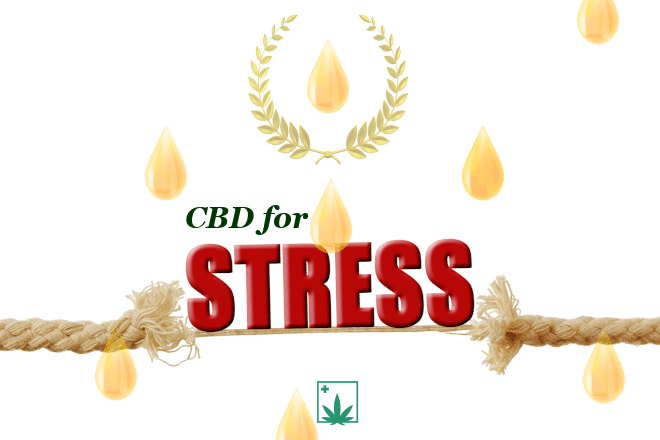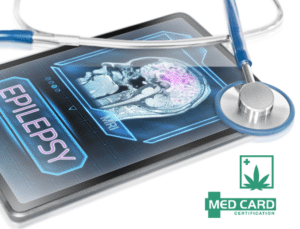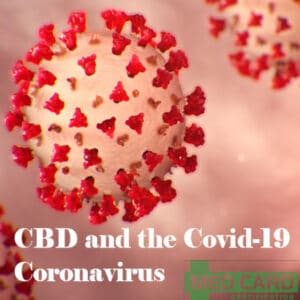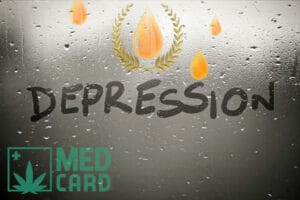

Treating Stress with CBD – How it Helps
- Patients suffering with symptoms of acute and chronic stress oftentimes find relief with hemp-derived CBD oil.
- Several studies have confirmed CBDs’ ability to reduce anxiety and other symptoms of chronic stress.
- Several CBD delivery methods suitable for the treatment of stress-related symptoms are available online and over the counter.
What is stress?
Stress is the result of difficult situations or events. There are two types of stress — chronic stress and acute stress. Acute stress is stress caused by an existing situation such as getting into an argument. Chronic stress can be caused by a stressful lifestyle or it can result from chemical imbalances in the brain.
While stress can be unpleasant mentally and emotionally, it also has devastating physical effects on the human body. The physical effects of stress include migraine headaches, sleep disorders, chronic pain, and digestive problems.
Chronic stress can also cause serious chronic conditions such as high blood pressure and drug/alcohol abuse. Excessive stress can also result in mental health issues such as depression, anxiety, irritability, and lack of motivation.
The human body has evolved to respond to stress by producing a hormone called cortisol. Cortisol produces changes in brain chemistry and metabolism, rapid breathing, increased heart rate, sweating, and muscle tension.
These physical effects — known as a fear response — prepare the body to fight or flee in the event of danger. However, in most of the modern world, our lives are rarely in danger. Nonetheless, we must still deal with these physical reactions to stress that we’ve inherited.
Stress triggers a tiny region of the brain called the hypothalamus which, in turn, prompts your adrenal glands to release a surge of adrenaline and cortisol. These hormones increase heart rate, elevate blood pressure, and suppress the digestive system. Interestingly, this also suppresses growth processes, speeds aging processes, and if left untreated long-term it can shorten lifespan.
After a perceived threat has passed, the hypothalamus triggers processes to extinguish fear. Hormone levels return to normal as does blood pressure, heart rate, breathing, etc. In some patients, this fear extinction reponse is inadequate. Is such cases patients might suffer from conditions such as PTSD, OCD, panic attacks, and paranoia.
It’s important to understand that stress affects each individual differently. While some people seem to be unphased by stress, others react with extreme anxiety.
Let’s take a look at stress symptoms that can be treated with CBD oil, and discuss how it works to reduce the ravages of stress on the human body.
How does CBD oil help stress patients?
One of the most common reasons that people give for using CBD oil is to relieve anxiety. But are there scientific studies that confirm this?
As early as 2009, in a study published in The British Journal of Pharmacology, authors wrote:
“5-HT1A receptors are involved in the cannabidiol-induced attenuation of behavioral and cardiovascular responses to acute restraint stress in rats… CBD can attenuate acute autonomic responses to stress and its delayed emotional consequences by facilitating 5-HT1A receptor-mediated neurotransmission.”
Put in layman’s terms, the researchers are confirming that CBD reduces stress and anxiety in lab animals.
Moreover, in 2015, researchers at the New York School of Medicine reviewed all available scientific studies on CBD. In their report, titled, “Cannabidiol as a Potential Treatment for Anxiety Disorders,” the authors wrote:
“Overall, preclinical evidence supports systemic CBD as an acute treatment of GAD, SAD, PD, OCD, and PTSD.”
What they’re saying is that CBD seems to offer rapid relief for patients suffering from symptoms related to stress and fear response.
On top of this scientific evidence, a mountain of anecdotal evidence has been collected from patient reports. The conclusion is clear. Many patients suffering with stress-related symptoms find relief from CBD oil.
How does CBD oil relieve symptoms of stress?
Several studies have shown that CBD has an effect on a wide variety of bodily systems such as the immune system, the nervous system, the endocrine system, the cardiovascular system, the digestive system, the heart, liver, and kidneys, the skin, and others.
Chemicals produced in the female flower clusters of the hemp plant include a family of compounds known as phytocannabinoids. One of these, and the most abundant in medicinal hemp, is cannabidiol, or CBD. Whereas THC, the cannabinoid which is produced in marijuana, produces intoxication when consumed in sufficient doses, CBD is non-intoxicating.
CBD has the ability to mimic some of the effects of certain endocannabinoids produced naturally by the human body during the fear extinction process. In particular, CBD acts similar to an endocannabinoid called anandamide which is responsible for regulating the production and uptake of serotonin, also referred to as “the bliss molecule” for its ability to relieve anxiety and improve mood.
For some patients who are deficient in anandamide, supplementation with CBD might help to not only improve mood but also to help extinguish fear response, relax the body, reduce heart rate and blood pressure, and improve sleep and appetite, among other beneficial effects.
How is CBD used to reduce stress?
Several CBD delivery options are available to patients seeking to treat symptoms of stress.
When dealing with sudden bouts of acute stress, it’s good to have a CBD product that offers a fast onset time. The fastest way to get CBD into the bloodstream is via inhalation. Smoking CBD-rich hemp flower, vaping CBD oil, dabbing with CBD concentrates, and CBD inhalers all offer fast relief from the symptoms of stress.
Sublingual use of tinctures can also produce relatively rapid results. CBD tinctures are dropped under the tongue where the CBD is absorbed directly into the bloodstream via the capillaries in the tissue under the tongue. Sublingual CBD tinctures are a bit more discreet, convenient, and less messy than smoking and other forms of inhalation. It’s also easier to determine dosage when using tinctures.
There are also several options for treating and preventing chronic stress that are both convenient and discreet. These include oral delivery methods such as CBD oil capsules, CBD tablets, and CBD-infused edibles and liquids. While determining dosage is easier, keep in mind that oral applications offer lower bioavailability (meaning you need more to get the same effect) and a slower onset time than previously mentioned options. When using oral delivery methods it can take anywhere from 15 minutes to an hour to begin to feel the effects. Edibles work faster on an empty stomach and take longer when taken with a meal.
Another option for those suffering from chronic stress-related symptoms is CBD transdermal patches. Transdermal patches adhere to the skin and release a steady dosage of CBD over a period of time.
All of the above-mentioned products are legal in the U.S. Anyone can buy CBD products online without the need for a medical marijuana card.
Additional non-intoxicating cannabinoids
CBD isn’t the only beneficial cannabinoid found in hemp. All of the products mentioned above, including hemp flower, are available with high levels of other non-intoxicating cannabinoids such as cannabigerol (CBG) and cannabinol (CBN), and others. Some, though not all patients find that these alternate hemp-derived cannabinoids produce better results than CBD.
Conclusion
Many patients who suffer from stress-related symptoms are finding relief with the use of CBD oil and other non-intoxicating cannabinoids derived from hemp in combination with proper diet, exercise, and stress-relieving activities such as relaxation and meditation.
Although CBD products are not made from marijuana, can be purchased over the counter, and can safely be used on a daily basis, patients suffering from chronic stress should consult with a qualified medical marijuana doctor.

Sources For Additional Reading:
- CBD Oil for Anxiety: Research, Dosage, Side Effects & More.
- Medical marijuana for stress – MedCard
- Cannabidiol as a Potential Treatment for Anxiety Disorders
- Cannabidiol in Anxiety and Sleep: A Large Case Series
- Reasons for cannabidiol use: a cross-sectional study of CBD users, focusing on self-perceived stress, anxiety, and sleep problems | Journal of Cannabis Research | Full Text
- CBD shows promise in the treatment of anxiety — but more research is needed, particularly among women














